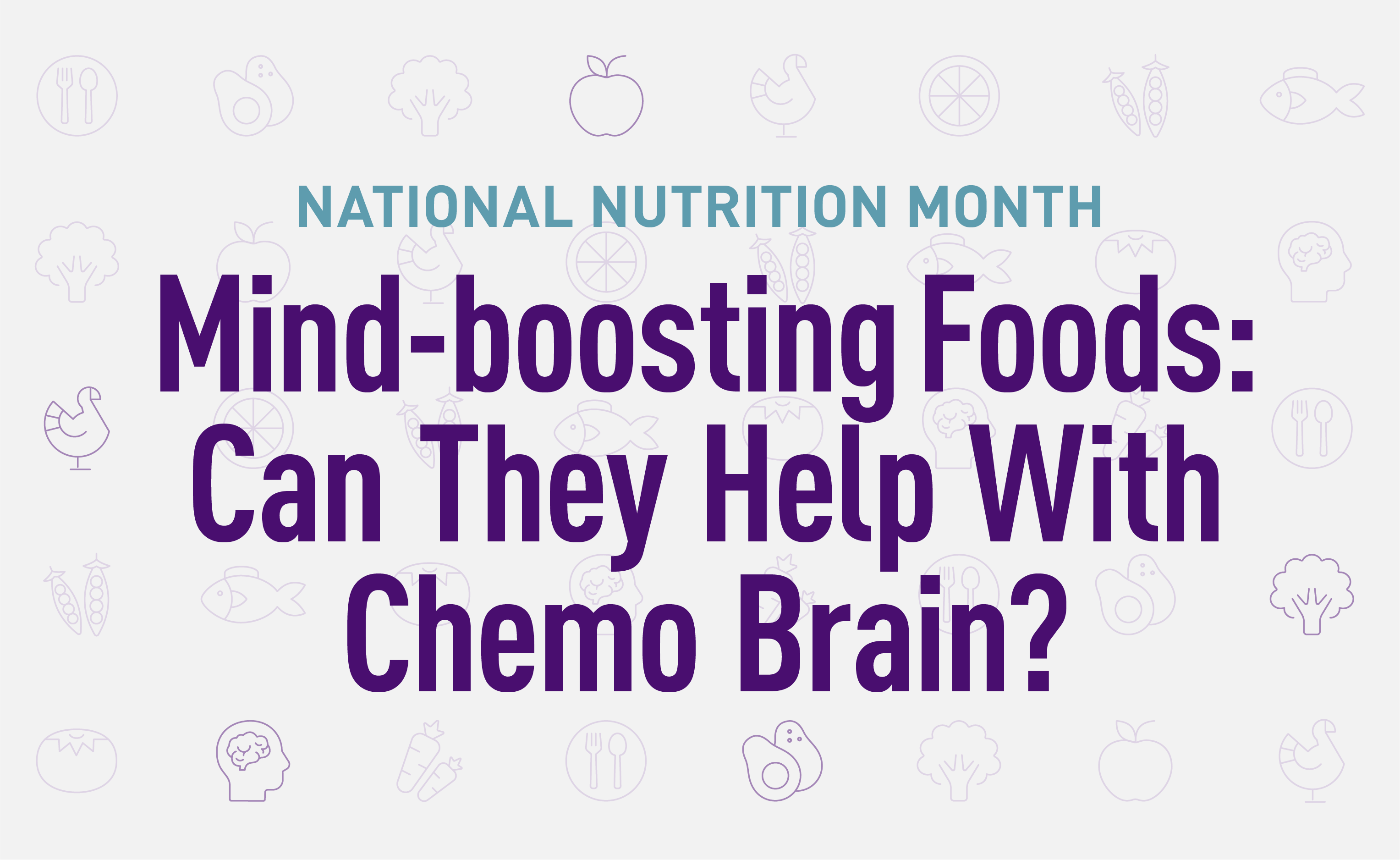
For everyone who has walked into a room and forgotten why they went in – we know that brain fog can be a normal occurrence. For cancer patients being treated with chemotherapy, brain fog – or chemo brain – can interrupt daily activities and be frustrating.
To learn whether patients can do something to help chemo brain – or delay age-related cognitive decline in people who are not on treatment – PanCAN talked to registered clinical oncology dietitian and member of our Scientific and Medical Advisory Board, Jeannine Mills.
Jeannine told us that treatment of chemo brain can include cognitive rehabilitation, exercise and meditation. But we wondered about diet, too.
The American Cancer Society provides helpful coping strategies for chemo brain and suggests increased vegetable consumption, as this may be linked to maintaining brain health with aging.
“Interestingly, there is now more research looking at the role of diet in preventing or delaying disease-related or age-related cognitive decline,” Jeannine said. “Studies are also looking at a combination of interventions including diet, exercise and cognitive training.”
Jeannine points out that it’s still unclear if it’s your diet that directly supports brain health – it may be more so that diet is staving off other diseases, like heart disease which may also affect brain health. Other research is looking at gut microbiome, or flora, and its connection to brain health, and there are several current studies that examine the role exercise may have in improving brain function among cancer survivors.
Jeannine mentioned several diets that have been studied in relationship to cognitive decline.
The MIND diet is one – it combines both the Mediterranean diet (healthy foods and traditional flavors from the Mediterranean) as well as the DASH diet (portion control mixed with healthy foods). The DASH diet has been shown to lower high blood pressure, a risk factor for Alzheimer’s disease. Though the MIND diet was strongly associated with slower cognitive decline, this is based on observational studies and further studies need to confirm this effect, Jeannine said.
The Mediterranean diet, MIND diet and DASH diet have many foods in common, some of which you’re already including in your daily meals. The diets emphasize fruits, vegetables (to include green leafy vegetables: kale, collards greens and spinach in tossed salads), whole grains, legumes, fish, nuts, unsaturated fats like olive oil, and low amounts of red meat and sweets or refined sugars.
The MIND diet specifically encourages people to eat from these 10 healthy food groups: leafy green vegetables, a variety of all other vegetables, berries, whole grain, fish, poultry, beans, nuts, wine and olive oil.
As to whether mind-boosting foods like these can help chemo brain, more studies need to be done. But bottom line – eating healthy is a plus, any way you slice it.





